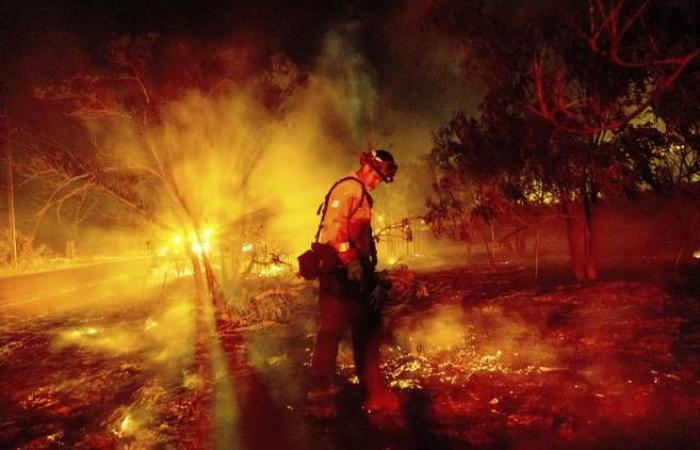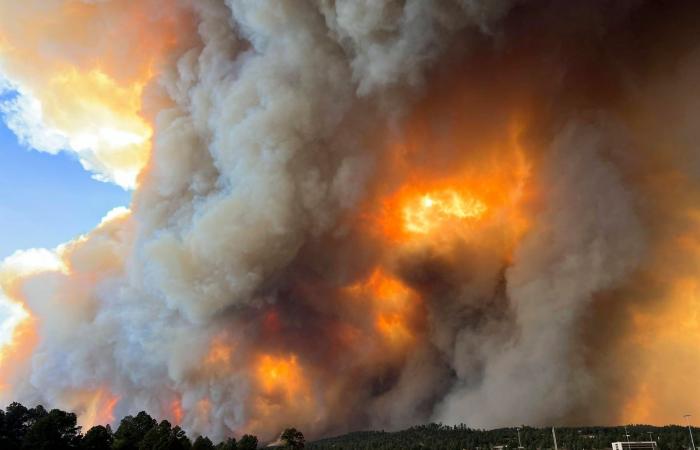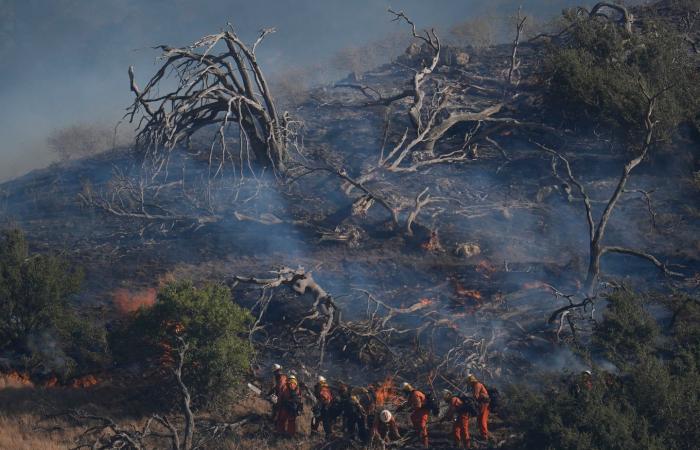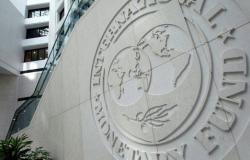Ash landscapes have already appeared this year in the wake of heat waves in Canada, the United States, Greece and Turkey.
If new resources have recently been allocated to fighting fires, the same cannot be said for the anticipation of such disasters, experts judge.
“We are still catching up,” said Stefan Doerr, director of the Fire Research Center at Swansea University of Wales.
Predicting a fire or its severity can be difficult due to the multiple factors at play, starting with the weather. But fires are becoming larger and more intense as a general rule, estimates the researcher, co-author of a recent study on the subject.
The number and intensity of extreme forest fires, the most destructive and polluting, have more than doubled in the world over the past 20 years, due to global warming due to human activity, according to another study which has just been released. go out in the magazine Nature Ecology & Evolution.
Firefighters work to put out a fire near Kumkoy on the Gallipoli Peninsula, Turkey. (Sercan Ozkurnazli/Associated Press)
“Prevention”
“We are clearly not well enough prepared to deal with this situation,” warns Stefan Doerr.
Climate change is one of the main causes of the problem although other factors also play a role, such as land use and the location of homes.
Since the fires know no borders, governments have started to tackle them jointly, underlines Jesus San-Miguel, expert at the Joint Research Center of the European Union (EU).
The latter has strongly developed the sharing of resources. Even Mediterranean countries outside the EU have already benefited from firefighting equipment or financial aid, notes the specialist. But this is no longer sufficient in the face of more extreme fires.
“We have received feedback from our civil protection colleagues who tell us: “we can no longer fight fires, the water evaporates before even reaching the ground,” says Jesus San-Miguel.
“We need to work more on prevention,” he adds.
Smoke rises in Ruidoso, New Mexico from wildfires. (Pam Bonner/Associated Press)
Controlled burning, the use of grazing livestock or mechanical means of clearing brush are effective ways of limiting what can fuel fires, says Rory Hadden of the University of Edinburgh.
Other solutions to avoid the first flames and reduce the spread: ban campfires and use roads as firebreaks, continues this specialist.
So many financial and planning efforts whose results are invisible. “Whatever method or technique you use…the result of that investment is that nothing happens, which is very psychologically bizarre. Success is when nothing happens,” remarks Rory Hadden.
Short memory
It is often residents and municipalities who take the initiative to clear brush around homes and public buildings. But not everyone is ready to accept the fact that they are in a risk zone.
“People don’t think it’s going to happen to them, but it will,” warns Jesus San-Miguel, referring to regions with formerly cold or humid climates – such as the northwest of the United States – which have experienced major fires in recent years.
Faced with these developments, countries are adapting and adopting new standards, from Canada to Scandinavian countries. But the best response is not always obvious, even in regions accustomed to fires, underlines Guillermo Rein, of Imperial College London, and lessons are not always learned after a disaster.
“People have very short memories when it comes to fires,” believes this specialist on the subject, taking as an example those which occurred in 2022 in east London.
“When the fires are there, everyone asks questions… But then, after a year, people forget,” he says.
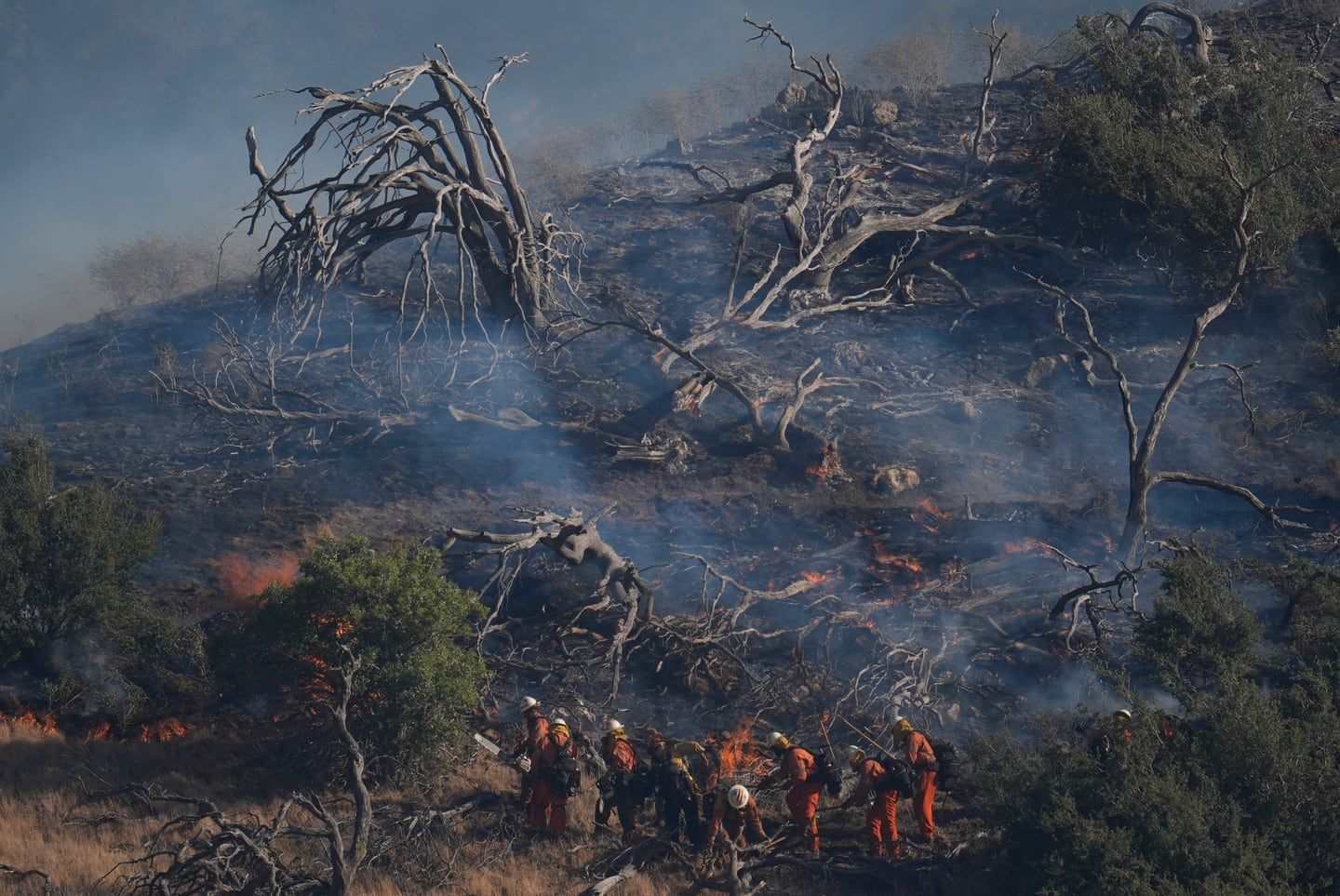
Firefighters battle blazes in Gorman, California. (Marcio Jose Sanchez/Associated Press)

